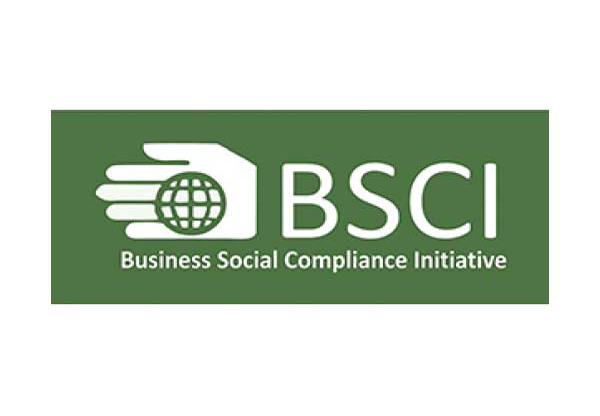
Business Social Compliance Initiative
What is BSCI?
The Business Social Compliance Initiative (BSCI) is a global business-driven platform for the improvement of social compliance in the global supply chain. It offers companies a comprehensive monitoring and qualification system covering all products sourced from any country. Its system is regulated by the BSCI Code of Conduct, which is implemented by its members through a combination of external monitoring and collaborative capacity building activities that ensure sustainable improvement in labour practices.
The Business Social Compliance Initiative (BSCI) was officially launched on 30 November 2004. It represents a co-ordinated effort by the European retail industry to implement a harmonized code of conduct and improve working conditions in supplier countries on a voluntary basis. The driving force behind the BSCI is the Brussels -based Foreign Trade Association (FTA), which is the association for European commerce lobbying particularly on foreign trade issues.
What are the benefits of the BSCI?
The benefits of the BSCI as a broad and comprehensive monitoring system for social standards in the supply chain are numerous: Synergy effects, reduction of multiple auditing thereby reducing costs are one characteristic. Factories/companies which are being audited can improve their competitiveness through improved social standards as better working conditions and an improved management system leads to better product quality, higher productivity, fewer work accidents, less sick leave producing more highly motivated workers and lower staff turnover. The result of this is an improvement ethically, but also economically for both involved employers as well as employees. The economic advantages in this respect – in parallel taking into account the objectives to reduce excessive overtime and raise salaries where necessary, have been shown in research studies in this field. Therefore, benefits of the individual company also have a positive effect on the broad public.
Does the BSCI provide a certification?
The BSCI is not a certification system and therefore does not issue a certificate. The BSCI provides a specific process with uniform management instruments for Members, suppliers, auditors and qualifiers. This approach ensures uniform audit procedures and evaluation and therefore comparability of the results. If I do not get a certificate what do I receive as proof of the audit? The cover page of the audit report outlining the results and the validity of the audit can be displayed in the factory premises and be used as proof of the audit.
Which products are covered by the BSCI?
Audits within the BSCI can be conducted in any production facility worldwide. The type of articles covered by the BSCI varies widely. There are quite a number of department stores as members, who sell all sorts of soft goods, clothing, home textiles, small appliances, toys, and accessories. There are also members that focus on one particular product group, for example clothing stores, shoe retailers, baby products, or sports goods. For the implementation of the BSCI in the food industry, the BSCI has developed a special module for the primary production (farms)
BSCI Social Requirements
- Management Practice.
- Documentation.
- Working Time.
- Remuneration.
- Child labour/Young Labour.
- Forced Labour/Discrepancy Measures/Prison Labour.
- Freedom of Association and Collective Bargain.
- No Discrimination.
- Working Conditions.
- Health and Social Facilities.
- Occupational Safety and Health.
- Dormitories.
- Environment.
BSCI Best Practices for Industry
The BSCI currently recognizes SA8000 as its best practice. Some points of crucial important are as follows
- Policy Establishment.
- Proper Planning and Implementation.
- Management Review.
